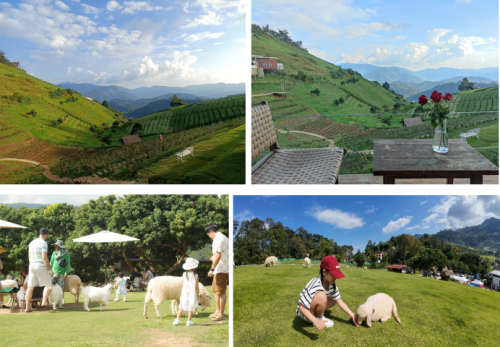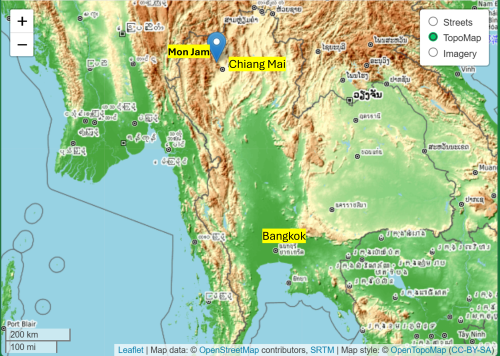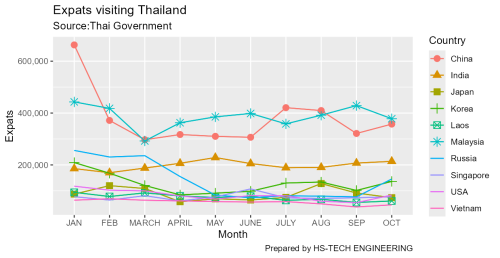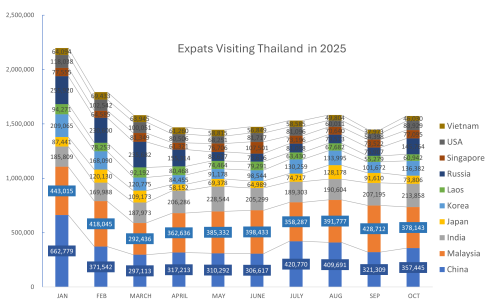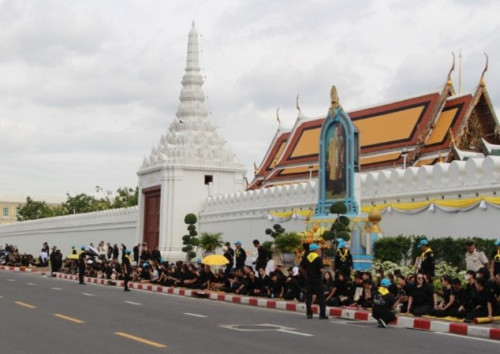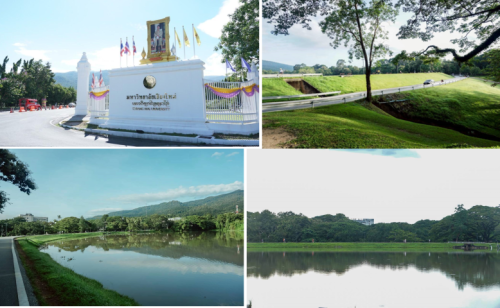blog post
ลมหนาวมาแล้ว ไปเที่ยว “ม่อนแจ่ม” เชียงใหม่
ม่อนแจ่ม ตั้งอยู่บริเวณหมู่บ้านม้งหนองหอย ในตำบลแม่แรม อำเภอแม่ริม จังหวัดเชียงใหม่ มีลักษณะเป็นพื้นที่บนสันเขา มียอดสูงราว 1,350 เมตร
เดือนที่เหมาะกับการเที่ยว ม่อนแจ่ม คือ ช่วงฤดูหนาว (พฤศจิกายน-กุมภาพันธ์) ซึ่งเป็นช่วงที่อากาศเย็นสบาย มีทะเลหมอกหนาแน่นและสวยงาม ฤดูหนาวเป็นช่วงที่ดีที่สุดสำหรับการเที่ยวม่อนแจ่มอุณหภูมิอาจลดต่ำถึง 10 องศาเซลเซียส
จุดเด่นของม่อนแจ่มคือ วิวธรรมชาติที่สวยงามแบบพาโนรามา โดยเฉพาะทิวทัศน์ภูเขาที่สลับซับซ้อนและทะเลหมอกยามเช้า นอกจากนี้ยังมีอากาศเย็นสบายตลอดทั้งปี และมีดอกไม้เมืองหนาวบานสะพรั่ง
ในปัจจุบันมีแหล่องท่องเที่ยว ร้านอาหาร คาเฟ่ และที่พักมากมายให้เลือกสรรค์ เหมาะสำหรับผู้ที่ชอบบรรยากาศธรรมชาติ มีกิจกรรมให้ทำยามเย็ม เช่น หมูกระทะ
(Fern)
Expats Visiting Thailand in 2025.
タイ国民の追悼期間:王太后陛下への敬意と賛辞
ช่วงเวลาแห่งความอาลัยของคนไทย “เคารพและไว้อาลัยพระพันปีหลวง”
ประเทศไทยได้สูญเสียสมเด็จพระนางเจ้าสิริกิติ์ พระบรมราชินีนาถ พระบรมราชชนนีพันปีหลวง
เมื่อวันที่ 24 ตุลาคม พ.ศ. 2568 ด้วยพระอาการสงบ สิริพระชนมพรรษา 93 พรรษา ข่าวนี้สร้างความเศร้าโศกอย่างยิ่งแก่ประชาชนคนไทยทุกหมู่เหล่า
เพื่อถวายความอาลัยและไว้อาลัยต่อการเสด็จสวรรคต สำนักพระราชวังได้กำหนดให้มีการไว้ทุกข์ ดังนี้
- ข้าราชการและเจ้าหน้าที่รัฐ: ไว้ทุกข์เป็นเวลา 1 ปี
- ประชาชนทั่วไป: ขอความร่วมมือ งดแต่งกายสีฉูดฉาดเป็นเวลา 90 วัน หรือพิจารณาตามความเหมาะสม
- การลดธงครึ่งเสา: ตั้งแต่วันที่ 25 ตุลาคม พ.ศ. 2568 เป็นต้นไป เป็นเวลา 30 วัน
- การถวายสักการะพระบรมศพ: ณ พระที่นั่งดุสิตมหาปราสาท ในพระบรมมหาราชวัง ตั้งแต่วันที่ 27 ตุลาคม พ.ศ. 2568 เป็นต้นไป
การสูญเสียครั้งนี้เป็นความเศร้าโศกร่วมกันของคนไทยทุกคน และถือเป็นช่วงเวลาที่ประชาชนและองค์กรต่าง ๆ สามารถแสดงความเคารพและไว้อาลัยด้วยความเหมาะสม
Photos were brought from the Bureau of the Royal Household and THAIRATH.
(Bee)
อ่างแก้ว มช. รู้สึกดีมาก!
อ่างแก้ว คือ อ่างเก็บน้ำขนาด 400,000 ลบ.ม. อยู่ในมหาวิทยาลัยเชียงใหม่ เริ่มสร้างขึ้นใน พ.ศ.2505 สำหรับใช้เพื่อการประปาภายในมหาวิทยาลัยเชียงใหม่ ซึ่งจะเปิดมหาวิทยาลัยในปี 2507
เป็นสถานที่ยอดนิยมสำหรับนักศึกษา มช. เพื่อพักผ่อน ออกกำลังกาย และถ่ายรูป บรรยากาศบริเวณอ่างแก้วยังสามารถเห็นดอยสุเทพได้อีกด้วย เป็นฉากหลังสำหรับถ่ายรูปได้ดีมาก ถือเป็นจุดชมวิวที่สวยงามอีกจุดหนึ่งที่สามารถนั่งพักผ่อนและถ่ายรูปยามเย็นที่ไม่ควรพลาด เมื่อมาเยือนเชียงใหม่อย่าพลาดการเช็คอิน ปัจจุบันเป็นพักผ่อนถ่ายรูป ชิลล์ๆของทั้งคนไทยและชาวต่างประเทศ.
(Fern)

